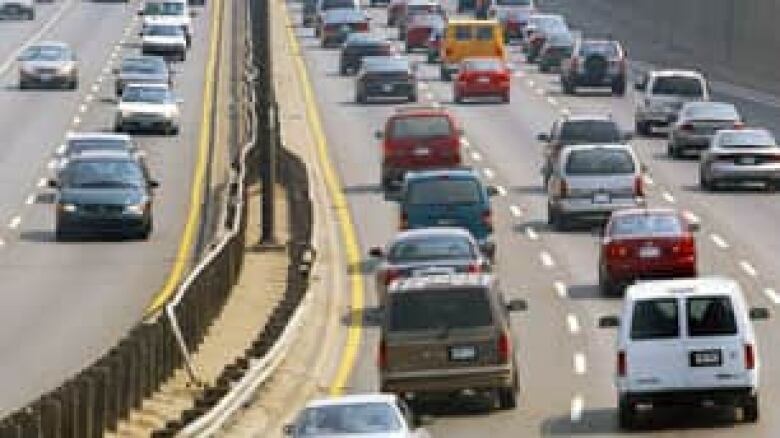Ontario drivers pay bulk of road costs, study says
A new study says Ontario drivers are paying the bulk of road infrastructure costs, to the tune of more than $7.5 billion a year.
And those in the Toronto-Hamilton area are paying about $1 billion more in fees and taxes than the annual cost of construction, maintenance and policing.
The Conference Board of Canada says Ontario road users driving cars, minivans, SUVs and light pickup trucks are paying 70 to 90 per cent of the costs of the road through fuel taxes, vehicle registration fees and tolls.
The report notes that municipalities that own and maintain a large part of the infrastructure collect a relatively small portion of the revenues.

It says the findings shed new light on the discussion about congestion, which tends to presume that road users are heavily subsidized by taxpayers.
Ontario Premier Kathleen Wynne has said that the province will have to charge new fees to bring in the $2 billion a year that's needed to upgrade public transit in the Toronto-Hamilton area.
The report, which was initiated and paid for by the Canadian Automobile Association, looked at figures from 2008 to 2010 the most recent year for which data was available, the Conference Board said.
"Motorists in Ontario meet at least a large portion of the costs that they impose on the road infrastructure and in major urban areas probably much more than those costs," the report said. "If we look at the total cost of driving, including vehicle costs, cost recovery will tend to be closer to 100 per cent."
One of the major challenges in addressing congestion is determining who should pay the costs of more road infrastructure, Conference Board director Vijay Gill said in a release.
The findings of the report don't remove policy options like congestion charges, but it does challenge conventional thinking about who pays for road infrastructure, he said.
The recommendations from Metrolinx, the transit planning agency, include a hike in the harmonized sales tax, a five-cent-a-litre regional gas tax, a $350-million-a-year business parking levy and $100 million a year in development charges.
With files from The Canadian Press













_(720p).jpg)


 OFFICIAL HD MUSIC VIDEO.jpg)
.jpg)



























































































